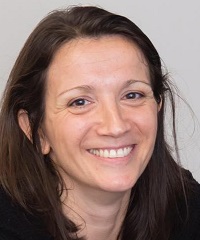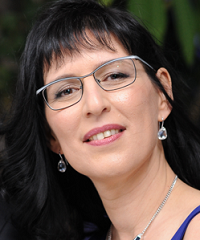A series of workshops will be held in conjunction with RE'19 to encourage the exchange of ideas and to discuss challenging research issues in requirements engineering. Workshops will be held before the main conference on Monday - Tuesday, September 23 - 24, 2019
For more information on each workshop, please visit the individual workshop's website.
| Monday, September 23, 2019 | |
|---|---|
| WS01 - D4RE | 3rd International Workshop on Learning from Other Disciplines for Requirements Engineering |
| WS02 - ESPRE | 6th International Workshop on Evolving Security and Privacy Requirements Engineering |
| WS03 - AffectRE | 2nd International Workshop on Affective Computing for Requirements Engineering |
| WS04 - FormReq | FORMal REQuirements |
| WS09 - RE Cares'19 | RE Cares about giving back to society: Employing RE techniques and hackathon for Jeju Island |
| Tuesday, September 24, 2019 | |
|---|---|
| WS05 - MoDRE | 9th International Model-Driven Requirements Engineering Workshop |
| WS06 - CrowdRE | 3rd International Workshop on Crowd-Based Requirements Engineering |
| WS07 - RE4SuSy | 8th International Workshop on Requirements Engineering for Sustainable Systems |
| WS08 - AIRE | 6th International Workshop on Artificial Intelligence for Requirements |
WS01 - D4RE
3rd International Workshop on Learning from Other Disciplines for Requirements Engineering - Monday, September 23, 2019
The D4RE workshops aims to bring together researchers and practitioners who are interested in discussing the question “What can requirements engineering learn from other disciplines?” The overall goal of the workshop is to raise awareness for this interesting topic in the RE community and foster future collaborations across the boundaries of requirements engineering and software engineering.
- Anne Hess, Fraunhofer IESE, Germany
- Marcus Trapp, Fraunhofer IESE, Germany
- Oliver Karras, Leibniz Universität Hannover, Germany
- Norbert Seyff, University of Applied Sciences and Arts North-western Switzerland and a senior research associate at the University of Zurich, Switzerland
- Kim Lauenroth, Chair of the International Requirements Engineering Board (IREB) e.V. and chief requirements engineer at adesso AG, Germany
WS02 - ESPRE
6th International Workshop on Evolving Security and Privacy Requirements Engineering - Monday, September 23, 2019
The Evolving Security and Privacy Requirements Engineering (ESPRE) Workshop is a multi-disciplinary, one-day workshop. It brings together practitioners and researchers interested in security and privacy requirements. ESPRE probes the interfaces between Requirements Engineering and Security & Privacy, and aims to evolve security and privacy requirements engineering to meet the needs of stakeholders; these range from business analysts and security engineers, to technology entrepreneurs and privacy advocates.
- Kristian Beckers, Siemens AG, Germany
- Duncan Ki-Aries, Bournemouth University, UK
- Seok-Won Lee, Ajou University, South Korea
- Nancy Mead, Carnegie Mellon University, USA
WS03 - AffectRE
2nd International Workshop on Affective Computing for Requirements Engineering - Monday, September 23, 2019
Affective states such as personality traits, attitudes, moods, and emotions play a crucial role in people's everyday performance at work. As software systems are designed and used by human beings which can be characterized by emotions, the aim of Affective Computing is to study the development of software systems and devices that can recognize, interpret, process, and exploit human affects, feelings, emotion, attitudes and personalities. Several requirements engineering tasks include acceptance and negotiation activities in which emotions play a crucial role. From requirements elicitation to negotiation, from modeling to prioritization, different emotions arise and evolve for stakeholders with different personality traits—including the final users. Currently, contributions in this area lack a dedicated forum. This workshop aims at creating an international, sustainable community where researchers and practitioners interested in the role of affect in requirements engineering can meet, present, and discuss their work-in-progress. The workshop provides an opportunity to “infect” the requirements engineering community, particularly the one interested in human aspects, with ideas from affective computing.
- Davide Fucci, University of Hamburg, Germany
- Walid Maalej, University of Hamburg, Germany
- Simone Kühn, Max Planck Institute for Human Development, Germany
WS04 - FormReq
FORMal REQuirements - Monday, September 23, 2019
While the importance of requirements formalization has often been highlighted, the way to support this activity in industrial context has not been sufficiently addressed in current research.
- Sophie Ebersold, University of Toulouse, France
- Régine Laleau, University of Paris-Est Créteil, France
- Manuel Mazzara, Innopolis University, Russia
WS05 - MoDRE
9th International Model-Driven Requirements Engineering Workshop - Tuesday, September 24, 2019
The Ninth International Model-Driven Requirements Engineering (MoDRE) workshop continues to provide a forum to discuss the challenges of Model-Driven Development (MDD) for Requirements Engineering (RE). Building on the interest of MDD for design and implementation, RE may benefit from MDD techniques when properly balancing flexibility for capturing varied user needs with formal rigidity required for model transformations as well as high-level abstraction with information richness. MoDRE seeks to explore those areas of requirements engineering that have not yet been formalized sufficiently to be incorporated into a model-driven development environment as well as how requirements engineering models may benefit from emerging topics in the model-driven community, such as flexible modeling or collaborative modeling. This workshop intends to identify new challenges, discuss on-going work and potential solutions, analyze the strengths and weaknesses of MDD approaches for RE, foster stimulating discussions on the topic, and provide opportunities to apply MDD approaches for RE.
- Nelly Bencomo, Aston University, UK
- Ana Moreira, Universidade Nova de Lisboa, Portugal
- Gunter Mussbacher,, McGill University, Canada
- João Araújo, Universidade Nova de Lisboa, Portugal
- Pablo Sánchez, Universidad de Cantabria, Spain
WS06 - CrowdRE
3rd International Workshop on Crowd-Based Requirements Engineering - Tuesday, September 24, 2019
The rise of mobile, social and cloud apps poses new challenges and opportunities to the field of requirements engineering (RE). Traditional RE techniques have difficulties scaling up to settings with a 'crowd' of thousands up to millions of users of a (software) product. The crowd is an interesting source for RE because it produces user feedback in texts and usage data. Being able to respond quickly, effectively and iteratively to the requirements, problems, wishes and needs identified in user feedback can increase a product’s success. Crowd-Based Requirements Engineering (CrowdRE) seeks to provide RE with suitable means for this crowd paradigm.
- Eduard C. Groen, Fraunhofer IESE, Germany
- Meira Levy, Shenkar College of Engineering, Design and Art, Israel
- Anas Mahmoud, Louisiana State University, USA
- Norbert Seyff, University of Applied Sciences and Arts Northwestern Switzerland, Switzerland
WS07 - RE4SuSy
8th International Workshop on Requirements Engineering for Sustainable Systems - Tuesday, September 24, 2019
The RE4SuSy workshop series has established a strong and growing research community around the different aspects of sustainability and how to support them in requirements engineering. Since requirements define how and what a software will do, we maintain that requirements engineering is the key point in software engineering through which sustainability can be fostered. Thus, the RE4SuSy workshop series is concerned with research on techniques, tools, and processes for sustainability through requirements engineering. Last year the workshop spanned a series of application domains and the discussion centered on the challenge of growing the research community and the potential steps required to achieve growth. Two main factors identified were the potential connection to empirical investigations on scientific software and the more systematic integration into computer science and software engineering education.
- Birgit Penzenstadler, California State University Long Beach, USA
- Colin Venters, University of Huddersfield, UK
- Ruzanna Chitchyan, University of Bristol, UK
WS08 - AIRE
6th International Workshop on Artificial Intelligence for Requirements - Tuesday, September 24, 2019
The purpose of this workshop is to explore synergies between Artificial Intelligence (AI) and Requirements Engineering (RE) to improve requirements quality. AIRE aims to strengthen the links between the community, including industry and academia. We welcome submissions in the intersection between RE and AI.
- Jaspreet Bhatia, Carnegie Mellon University, USA
- Pradeep K. Murukannaiah, Rochester Institute of Technology, USA
- Nan Niu, University of Cincinnati, USA
- Fabiano Dalpiaz, Utrecht University, The Netherlands
WS09 - RE Cares'19
RE Cares about giving back to society: Employing RE techniques and hackathon for Jeju Island - Monday, September 23, 2019
RE Cares is a series of RE sessions and hackathon to work with real stakeholders to elicit and specify requirements, as well as to develop an initial design and prototype early features for an app to be used by the Jeju Center for Creative Economy & Innovation(J-CCEI) in Jeju Island, South Korea. All RE participants are welcome to join RE Cares. We particularly encourage students to join us. Check back here as we start to post early requirements and domain descriptions.
- Jane Hayes, University of Kentucky, USA
- Alex Dekhtyar, California Polytechnical University San Luis Obispo, USA
- Barbara Paech, Heidelberg University, Germany
- Irit Hadar, University of Haifa, Israel
- Meira Levy, along with Shenkar students
- Seok-Won Lee, Ajou University, South Korea
- Young Joon Kim, J-CCEI, South Korea







